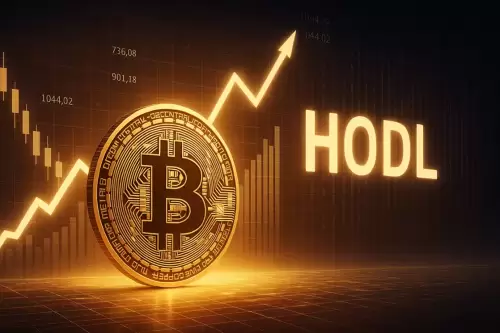 |
|
 |
|
 |
|
 |
|
 |
|
 |
|
 |
|
 |
|
 |
|
 |
|
 |
|
 |
|
 |
|
 |
|
 |
|
Cryptocurrency News Articles
Singapore's Crypto Crackdown: What It Means for You
Jul 04, 2025 at 01:00 pm
Singapore is tightening its grip on crypto, impacting exchanges and stablecoins. Here's what you need to know about the latest crackdown and its potential ripple effects.

Singapore's Crypto Crackdown: What It Means for You
Singapore's crypto scene is getting a makeover. With increased regulatory scrutiny and a focus on stablecoins, the landscape is shifting. Let's break down what's happening and what it means for crypto enthusiasts.
Singapore's Regulatory Shift: A Summary
Singapore is taking a stricter stance on crypto, particularly concerning unlicensed exchanges and stablecoins. The Monetary Authority of Singapore (MAS) is leading the charge, aiming to create a well-regulated and competitive ecosystem.
The Crackdown on Crypto Exchanges
In May, MAS instructed crypto firms offering services abroad to get licensed or leave Singapore, setting a June 30 deadline. This move is part of a broader trend to regulate the industry and weed out bad actors, as seen in Thailand and Dubai. As analyst said, regulatory actions across Asia are best understood as a region-wide game of ‘FATF musical chairs’.
Stablecoin Regulations: A Deep Dive
Singapore's stablecoin regulatory framework is more mature than those of Hong Kong and the United States. MAS set out requirements for stablecoin issuers in August 2023, focusing on maintaining reserve assets and ensuring issuers operate solely out of Singapore. Stablecoins must be backed by liquid assets, and issuers need a base capital of at least $1 million.
However, one significant restriction is that stablecoins regulated under MAS’ framework must be issued only in Singapore. As Ms Angela Ang noted, this could pose challenges for issuers who want to expand into other major hubs like the US.
Bitcoin's Dominance and the Altcoin Squeeze
Bitcoin's market cap share has surged, driven by geopolitical tensions and regulatory crackdowns. Singapore’s expulsion of unlicensed exchanges has led investors to shift toward SEC-regulated Bitcoin ETFs. Meanwhile, altcoins face a liquidity crisis. Investors are increasingly viewing Bitcoin as digital gold, creating an uneven market structure.
Potential Future Scenarios
If the Federal Reserve starts rate cuts and Bitcoin breaks previous highs, capital may overflow to ETH and other leading altcoins. However, if Bitcoin dominance breaks 70%, it may squeeze altcoin survival space. The approval of ETH spot ETFs in Q4 2025 could shift the landscape.
Personal Take: Navigating the Changing Landscape
Singapore's proactive regulatory environment could position it as a regional leader in the crypto space. The focus on stablecoins and the crackdown on unlicensed exchanges may seem strict, but they could ultimately foster a more stable and trustworthy ecosystem. The key is finding a balance between innovation and regulation.
As traditional finance increasingly views Bitcoin as digital gold, and with regulators trying to figure out the best path forward, it's an exciting time to be involved in the crypto world.
Wrapping Up
So, what's the takeaway? Singapore's crypto crackdown is reshaping the market, and while it might seem like a lot to keep up with, it's all part of the wild ride that is cryptocurrency. Buckle up and enjoy the show!
Disclaimer:info@kdj.com
The information provided is not trading advice. kdj.com does not assume any responsibility for any investments made based on the information provided in this article. Cryptocurrencies are highly volatile and it is highly recommended that you invest with caution after thorough research!
If you believe that the content used on this website infringes your copyright, please contact us immediately (info@kdj.com) and we will delete it promptly.





























































